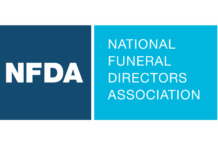By Leader Contributor Glenn Gould, CEO of MKJ Marketing
Every business has expectations based upon past experience which owners and managers use to develop budgets, plan manpower, and project cash flow — but we have entered a period when all of the norms have evaporated, making every day an adventure and a challenge.
Some businesses have been destroyed, while others have prospered during this frantic year, which is how an economy works. After all, who would have imagined the return of drive-in theatres and shopping malls becoming Amazon warehouses?
Auto sales during the Great Recession from 2008 through 2012 declined as families deferred purchases. In the years following the recession, auto sales recovered and accelerated with expensive trucks leading the way, requiring longer and larger vehicle loans. The recent layoffs and furloughs have forced families to choose between their home mortgages or car payments. Banks will begin repossessions, which will ultimately land on auto dealer lots just as the car factories return to production, reversing the current vehicle shortage into a glut; a sellers’ market will turn into a buyers’ market in just a matter of weeks.
Family finances are impacted by the national economy, and the national economy has been on a roller coaster ride. As the U.S. economy slowly pulls itself out of this recession, business will not return to normal, as many families will take years to recover. Investors will have taken advantage of the situation, just as they did during the Great Recession. Understanding how your business will do in the “new normal” is a management challenge, which can set your business on a path — good or bad — for years to come.
Recent Trends in Funeral Service
Funeral pre-need is the perfect example. Pre-need sales suffered greatly during the two-month shutdown, but while families were isolated in their homes and the news relayed stories of deaths in major metros, people began to think about their own mortality and considered the advantages of pre-planning. As the restrictions were lifted, funeral and pre-need businesses began offering remote arrangements, and pre-need sales began to climb. Instead of “lunch and learns” at restaurants and cafeterias, pre-need businesses have been sending families lunches and making their presentations remotely.
Cremations are up — even in markets where traditional burials have remained popular. The pandemic has added to the stress caused by a family member’s illness or death, even when the death is unrelated to the virus, and in markets where the pandemic has had little or no impact. It is likely the higher cremation rate is what would have occurred over many months had the death rate been stable. Many deaths were moved forward, which elevated the cremation rate more quickly than it would have during normal circumstances, so it represented a greater shock to finances. Fortunately, at-need volume also elevated, albeit not as profitably, so most firms are doing well during this period.
Funeral business owners in Southern states that depend on the traditional business model are just now experiencing what the West Coast funeral homes experienced 20 and 30 years ago. It raises the question: Will Southern firms implement profitable strategies that have proven to be successful in states with higher cremation rates?
Typically, the summer months bring fewer deaths — but not this year. The death rate was high during the first three months of 2020 and has continued higher than normal through the summer months.
Pivoting During the Pandemic
The increased number of deaths has caused funeral homes to continue their investment in television advertising and digital marketing. The business shutdown in March and April caused many advertisers to withdraw their ads, causing the cable and broadcast companies to reduce their advertising rates. Funeral businesses have taken advantage of the reduced rates and continued to advertise through the summer.
The greatest surprise has been consumer choices when selecting funeral homes. Instead of opting for lower-priced or discount funeral homes, consumers have selected the stronger brand names in their respective communities for both funerals and cremations. In other words, they have chosen to pay more for the peace of mind derived from doing business with a proven entity.
To no one’s surprise, there has been increased use of e-commerce cremation arrangement websites, some of which can be attributed to cemetery closings in metro areas. Others like Milwaukee Cremation in Milwaukee, Wisconsin, and Lumen Cremation in Nashville, Tennessee have started amid the pandemic to offer completely virtual planning. Not wanting to spend any more time in funeral homes than necessary, many consumers selected the completely sterile option of making arrangements online with credit card payment. Prior to the pandemic, about 15% of visitors to a cremation arrangement website would ultimately result in a traditional cremation service in a funeral home and paying full funeral home prices; it will be interesting to see if this trend continues.
Monument sales improved over the first half of the year, perhaps because thousands of families were deprived of the opportunity to hold a traditional funeral or memorial service, so the funds were invested in cemetery memorialization instead.
What Changes Should You Be Considering?
Although 2020 will be remembered by all as the strangest, and in many ways, the worst year any of us have experienced, we can’t help but wonder what the carry-over will be into next year and the years to follow. The return to normal health risks does not mean business will return to normal. A major factor is that the national saving rate has increased from 8% of household income to 20% as families learn to save disposable income.
Restaurant visits will likely be lower than before the pandemic, as many households have found cooking at home to be more fun and less work now that they have systems established for food prep. The end result will be fewer family-owned restaurants and a boom for corporate-operated restaurants.
What impact will this have on the beautiful reception rooms funeral businesses have invested in over the past decade? Family homes, particularly retirement homes, are too small for funeral receptions, so families will not be hosting events in their homes. Many banquet facilities and family-owned restaurants will not survive. Instead, this business downturn will serve corporate restaurants well, as they have the financial wherewithal to survive the downturn. This will create demand for receptions at the funeral home; after all, how many families will want to hold their reception at Ruby Tuesday, Five Guys, or Olive Garden?
Funeral directors need to become more comfortable presenting their reception room services. Just like merchandise and other services that funeral homes offer, reception room services need to be sold. Step one is to have facility photos in arrangement rooms depicting events and full explanations of how the rooms are maintained and disinfected.
Air travel and hotels will likely need the longest time to recover. Businesses will continue to have Zoom meetings instead of buying airline tickets and business hotel stays. But what about personal travel? Will families be anxious to invest in airline travel relative to funerals? Business travel has always been the airlines’ most profitable business, as they are willing to purchase higher-priced tickets. This will likely force airlines to raise their prices for personal travel. More expensive travel will cause families to reconsider travel for funerals. As such, more families will depend on Zoom arrangements and the livestreaming of funerals. Funeral businesses should include the availability of both on their websites, as consumers will come to expect and select firms that offer alternatives to travel.
More expensive air travel could also impact shipping rates, which could impact the cost of shipping human remains. This will be another factor that will contribute to higher cremation rates, as well as the livestreaming.
What Happens Next?
The pandemic has changed everything. Life for much of the public has changed dramatically in ways they never expected. Certainly, the funeral industry is no exception, but at least we are working.
Imagine the millions of household heads — the bread-winners — sitting around the house, often investing their time in negative pursuits, who would love to be busy at their jobs. The best evidence of this social upheaval is the sharp rise in the murder rates in large cities.
I believe society will continue with new norms. Let’s hope it doesn’t take funeral businesses too long to make adjustments.








